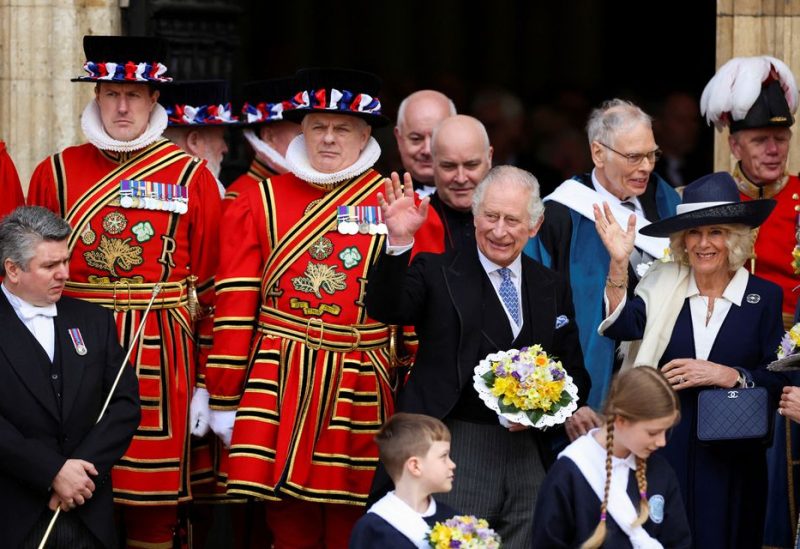
Britain's King Charles and Camilla, Queen Consort wave as they attend the Maundy Thursday Service at York Minster, in York, Britain, April 6, 2023. REUTERS
When King Charles III is crowned in a lavish ceremony next week, the main anti-monarchist movement in Britain will gather along the procession route next to a statue of Charles I, who was beheaded in 1649, resulting in a brief republic.
Republic supporters, an organization created in 1983 that pushes for an elected head of state, are organizing their largest demonstration yet. They think Charles’ succession to the throne represents their greatest opportunity of bringing the monarchy, which dates back more than 1,000 years, to an end.
Graham Smith, its head, sees the grand coronation at London’s Westminster Abbey as the perfect opportunity to expose what he regards as an anachronistic institution with no place in a 21st century democracy, particularly at a time when people are facing the worst cost of living crisis in decades.
Smith said he expected over 1,000 people dressed in yellow shirts to join the protest on May 6, where they will hold up placards, and give speeches.
When the newly crowned king passes in his gold coach, through streets lined with tens of thousands of well-wishers, they plan to boo loudly and chant “not my king”.
Polls show Charles is less popular than his mother Queen Elizabeth, the world’s second-longest reigning monarch, whose death last year marked the end of an era in Britain.
According to YouGov, in 2012 73% of the public said the monarchy was good for Britain, but that figure has dropped now to 53%.
Smith said the public’s respect for the queen meant she had been an “obstacle” to the republican cause.
“I think the monarchy is in a lot of trouble because they have lost their star player, support is clearly going down, interest is going down and that is a big problem for them,” Smith told Reuters.
“Charles has not inherited the deference, respect and sycophancy that was enjoyed by the queen, so people are far more willing to challenge him.”
The British monarchy traces its history back to William the Conqueror who invaded England in 1066, though royals ruled the patchwork of kingdoms which stretched across what became England, Scotland and Wales for centuries before that.
While the monarchy has gradually ceded power to parliament over the centuries, the king or queen still plays a significant, if almost entirely symbolic, role in British life such as the appointment of prime ministers and the judicial system.